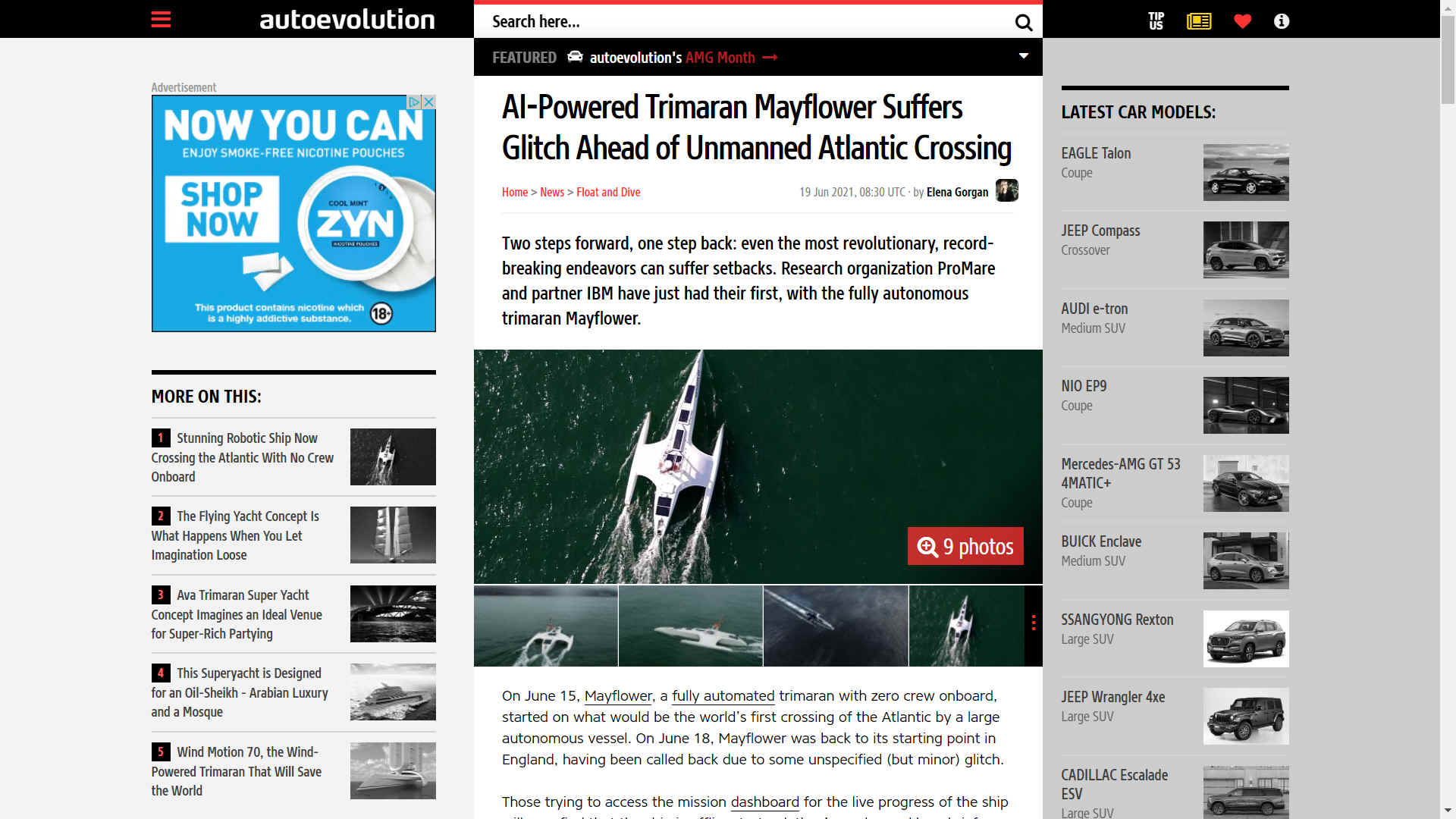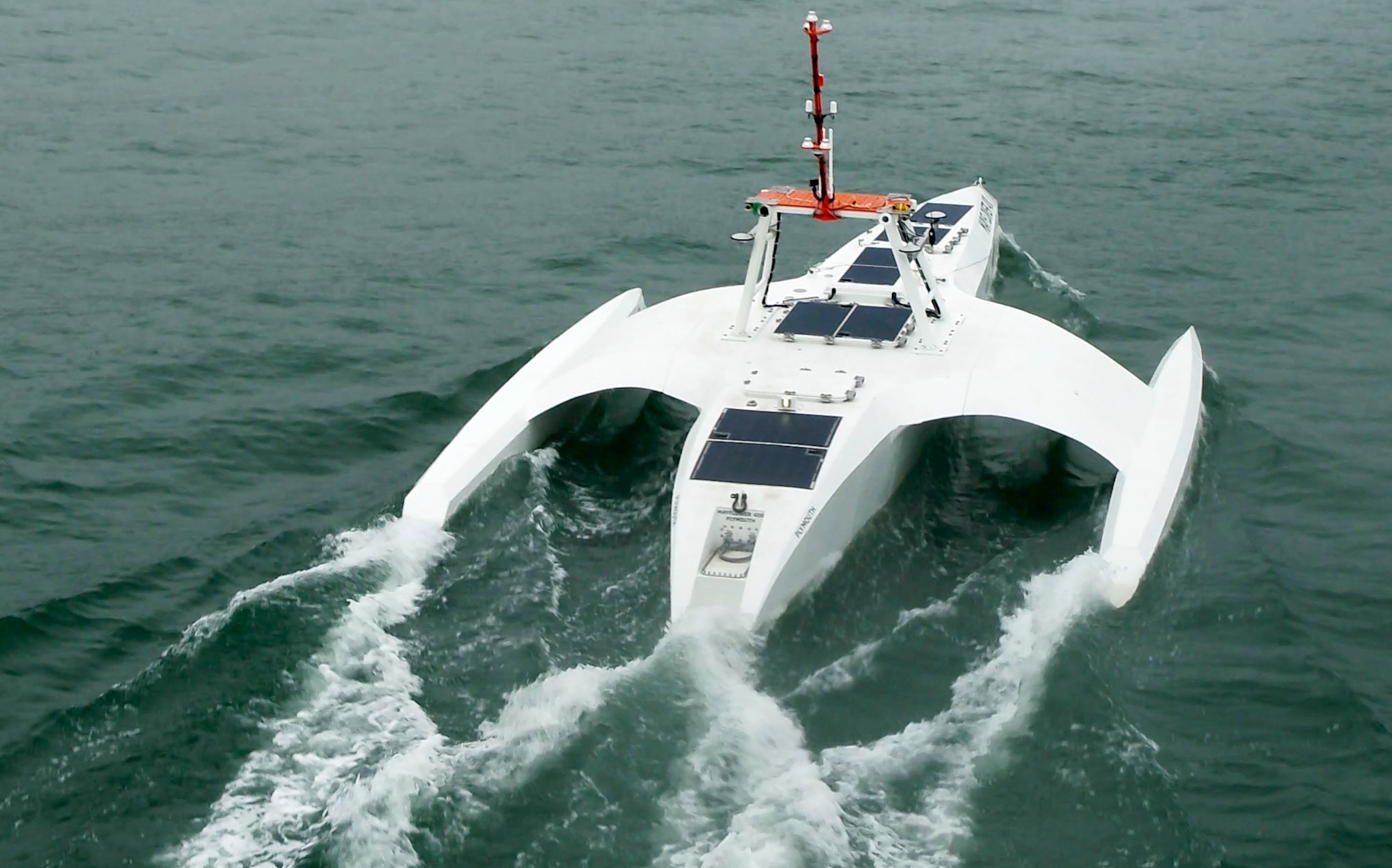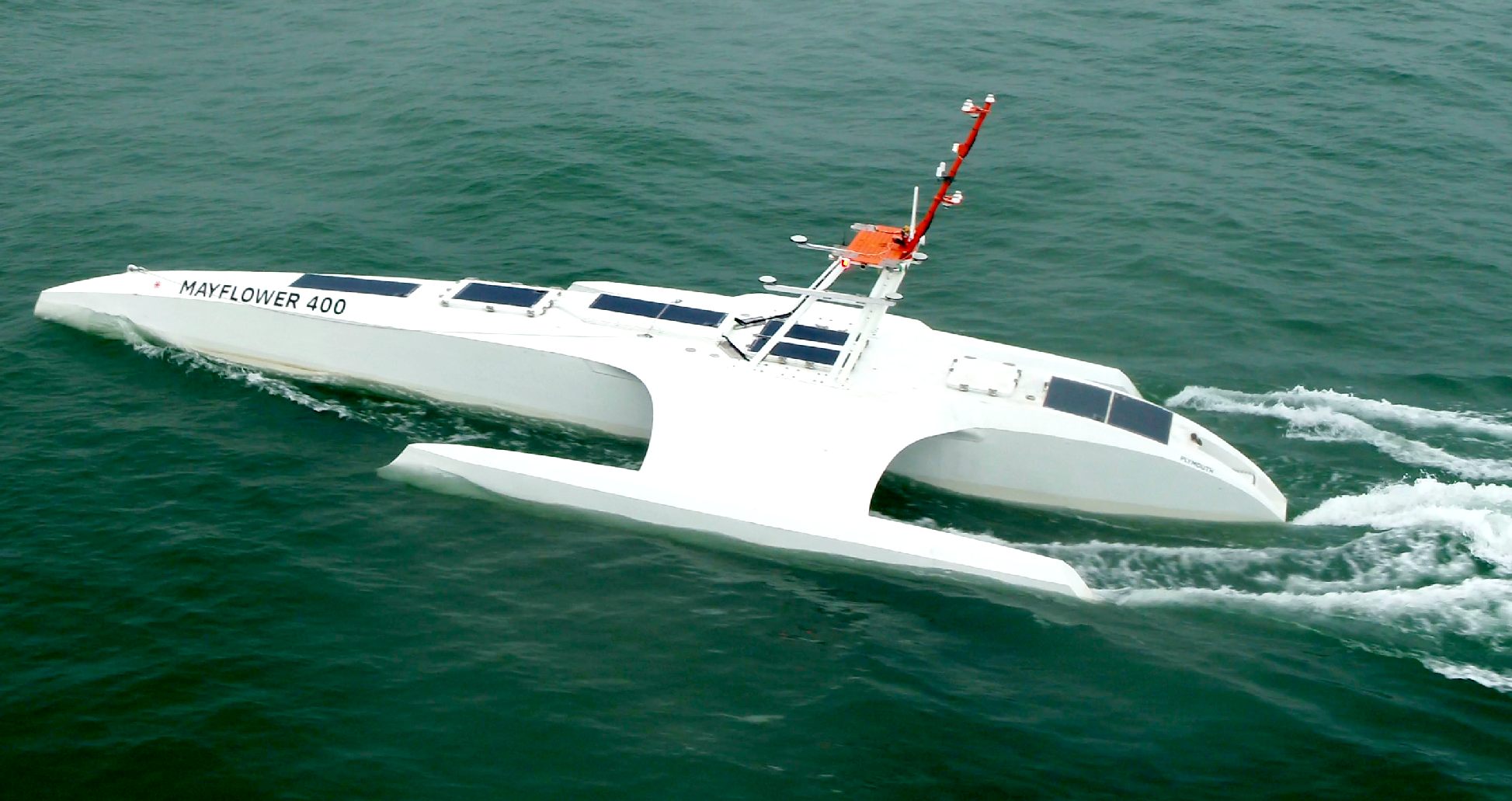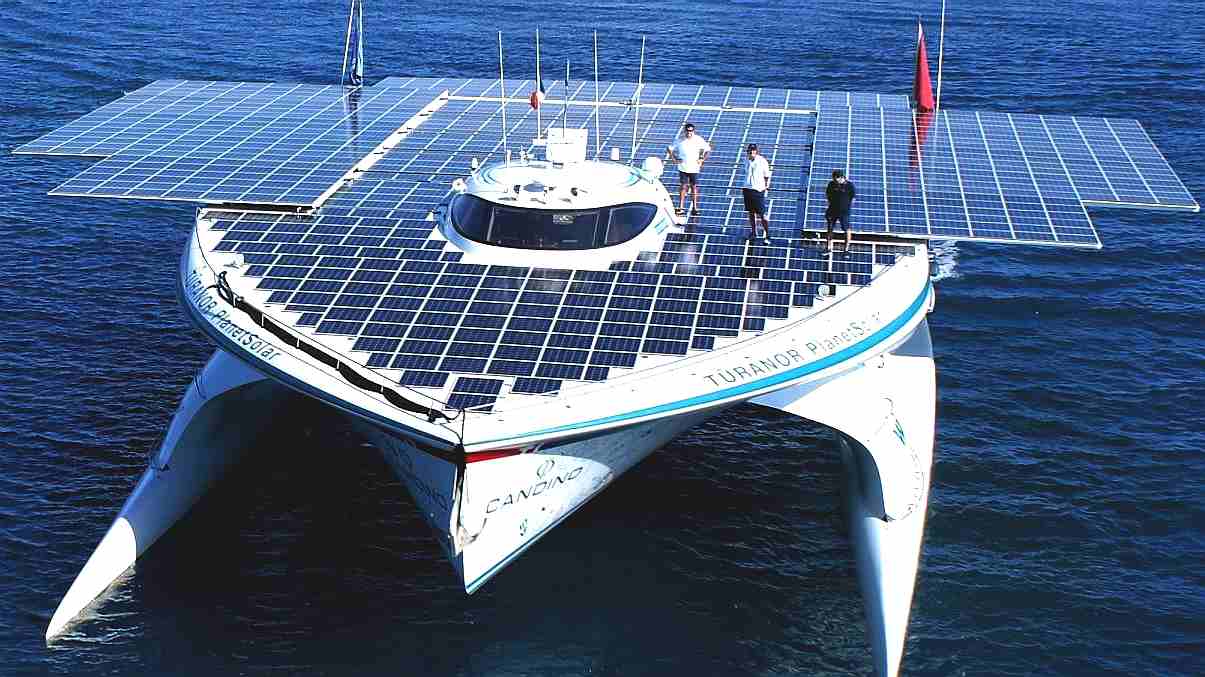
MAYFLOWER
ATLANTIC VOYAGE - The Mayflower's direction of travel is the reverse of the
Scout and Voyager autonomous Atlantic
attempts that took advantage of trade winds. The Mayflower will be
heading into prevailing winds and currents. If sail powered, she would need to tack. But powered by a
diesel
engine, with support from the deck mounted solar panels, there may be no need for
that - except, that we saw her struggling when out at sea. Energy from nature is used to power the onboard AI and
satellite
comms. Many media reports inaccurately refer to wind power as a feature
of the MAS, but you can plainly see that there is no wind turbine or
wing-sail.
AUTO EVOLUTION 19 JUNE 2021 -
GLITCH AHEAD OF UNMANNED ATLANTIC CROSSING
Two steps forward, one step back: even the most revolutionary, record-breaking endeavors can suffer setbacks. Research organization ProMare and partner IBM have just had their first, with the fully autonomous
trimaran Mayflower.
On June 15, Mayflower, a fully automated trimaran with zero crew onboard, started on what would be the world’s first crossing of the Atlantic by a large autonomous vessel. On June 18, Mayflower was back to its starting point in England, having been called back due to some unspecified (but minor) glitch.
Those trying to access the mission dashboard for the live progress of the ship will now find that the ship is offline. Instead, they’re welcomed by a brief message, reading, “MAS400 has developed a small mechanical problem and is going back to base so we investigate further. We hope to get turned around and on our way as soon as possible.”
MAS400 is the official name of the trimaran, the Mayflower Autonomous
Ship, a 5-ton, 50-foot (15-meter) tri-hulled ship packed with AI, sensors and tech, and theoretically able to cross the ocean, collect impressive amounts of data, and adjust and optimize course.
It’s a years-long project by research organization ProMare and IBM, which provided most of the software, and it departed from Plymouth, England, heading to Plymouth, Massachusetts by way of the Isles of Scilly and Privincetown on
Cape Cod.
ProMare doesn’t offer an estimate for the delay, but once Mayflower is ready to set off again, it should complete the journey in about three weeks. The possibility of a glitch mid-trip was a primary concern from the start, as the video below shows: it’s one thing when something trivial breaks in the middle of the Atlantic and you have a competent crew to fix it, and it’s an entirely different story when there’s no one on board.
By Elena Gorgan


TRANSATLANTIC
EVENT CALENDAR 2021
The
IBM Mayflower
MAS 400 is an
autonomous
trimaran powered by a
diesel
engine, piloted by a solar powered artificially intelligent
computer
system developed by IBM called 'AI Captain.'
A
BIT OF HISTORY
The
first solar boat to travel around the world was the PlanetSolar,
coming home on the 4th of May 2012. Computing power was not as advanced
as it is today, when PlanetSolar set off on 27th September 2010,
following the Sunshine Route, first shown in London at the 1994/95 Boat
Show. Then in January 2013 a patent specification for a COLREGs
compliant, unmanned autonomous navigation system was filed by a BMS
engineer ( now our IP) with the suggestion in 'Claims' for using a solar
powered trimaran (patent granted 12 June 2019) as a suitable hull
configuration. This patent also included wind energy harvesting as
originally advertised for the Mayflower 400.
JOURNEY
TIME
The original wooden
30-meter Mayflower took 66 days to carry
the Pilgrims,
Founding Fathers from the U.K. to what is now the U.S. The voyage would
have involved a lot of tacking,
because sailing ships cannot sail directly into the wind. But the new
sail-less aluminium
boat should take two to three weeks (14-21 days) depending on how strong
the prevailing trade
winds are, and assuming no technical glitches or marine accidents -
the whole point of the COLREGs
compliant navigation
system.
LINKS,
CONTACTS & REFERENCE
https://www.autoevolution.com/news/ai-powered-trimaran-mayflower-suffers-glitch-ahead-of-unmanned-atlantic-crossing-163547.html
https://www.autoevolution.com/editors/browse/elena-gorgan/
https://www.autoevolution.com/editors/browse/elena-gorgan/




